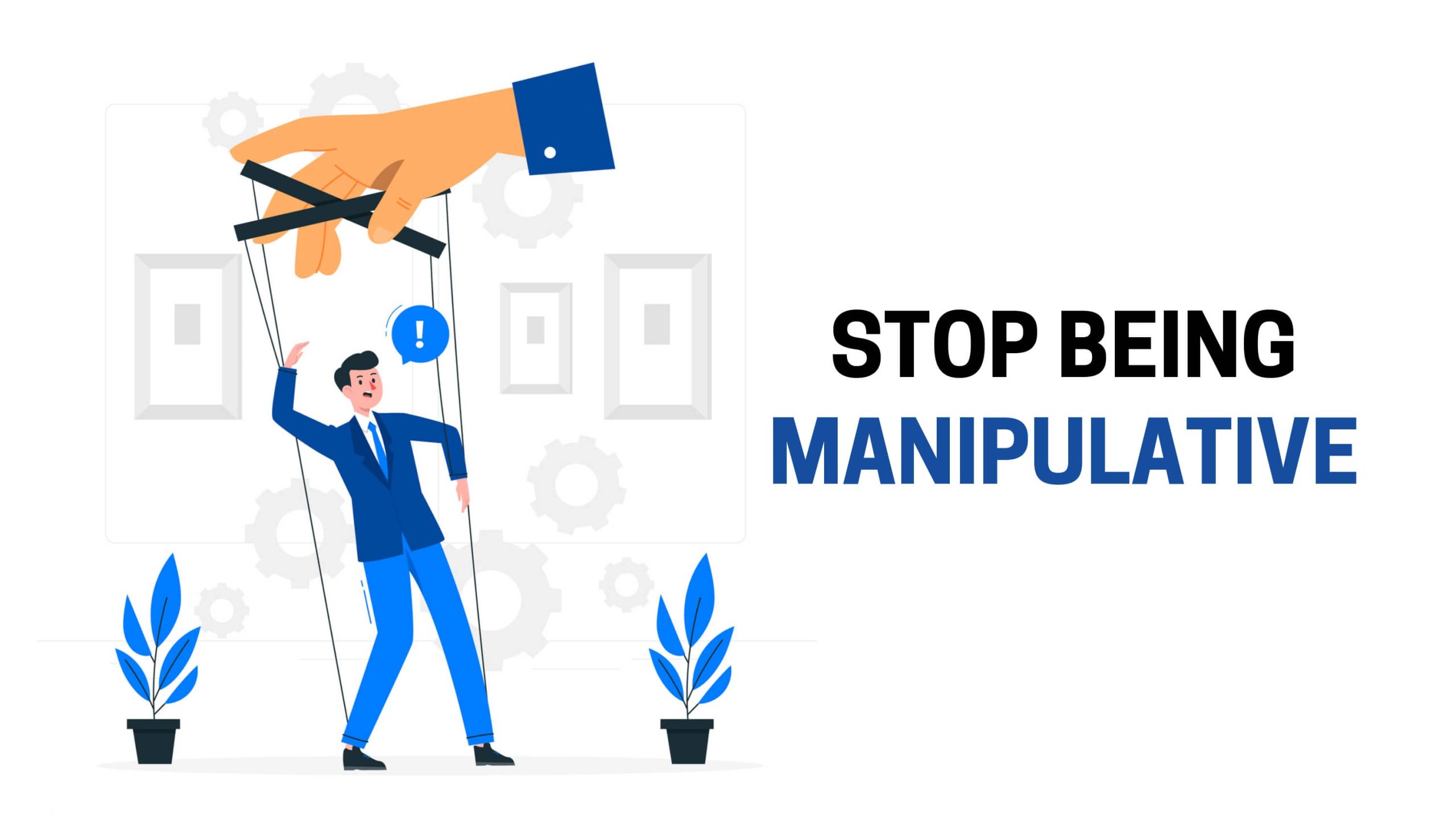Love comes when manipulation stops; when you think more about the other person than about his or her reactions to you. When you dare to reveal yourself fully. When you dare to be vulnerable. – Joyce Brothers
Manipulation is a behavior we can all recognize as bad when it’s done to us, but, if we are perfectly honest, who hasn’t engaged in it sometimes? If this becomes a habit, however, we take a lot of risks. We might find our relationships damaged. Other people might not trust us. We can also feel guilty over the means we use to achieve our goals. But how can we stop doing this, if it often seems to work? Let’s find out.
Focus on the other person
We use manipulation when we want to achieve something for ourselves. A good first step is to remember to focus on the other person. What are they hoping to achieve? What are they looking for in our interaction? Do I want what’s best for them as well as for me? How will they feel if they know I am trying to manipulate them?
Focus on empathizing with the other person and try to understand their perspective, even when it doesn’t appeal to you. It can be a challenge to understand someone different from you, but a very satisfying challenge as well once you learn to do it. Center the other person.
Listen effectively
Sometimes, we manipulate because we want to get what we want. But often, the interests we have are not quite so opposed to those of the other person as they would seem as first glance. To know this, you need to listen.
Often, in our interactions we focus too much on ourselves, on what we will say. But listening to the other person can help us identify what they want and what they are actually trying to communicate. Here, we can see many opportunities to get a mutually beneficial arrangement and also listen to the person’s true needs and then communicate from a position of wanting to help them, understanding them.
Be authentic
Manipulation is a tool we use because we don’t want to say what we want or need directly. But often, it’s much easier to do this. It’s easier to tell somebody what you want for your birthday than to send them hints. It increases the chances that we get what we want and often is less effort, although, of course, one must not forget to be polite.
When we learn to be authentic, we show ourselves as we truly are. Instead of manipulation, which can divide people, authentic communication can help us connect deeply to others. Try asking for what you want and need and see how those around you respond.
Say sorry
Nobody is perfect, and you might slip up. It’s fine to later talk to the person and say that you’re sorry for communicating a certain way. If you find yourself falling into the same traps a lot, you can try anticipating them and showing that you are aware of your patterns and working to change them.
While it might seem awkward to acknowledge you being underhanded, it tends to be obvious to the other person either way. Try stopping yourself and using a different method, and say sorry if you need to.
Avoid manipulative people
It’s harder to let go of a habit others around us practice. A good tip is knowing that people who use manipulation can often be less good for us. If we can identify toxic or simply disagreeable relationships where other people use manipulation, we can learn to cut down contact. If that is not an option, learn to point out the tactics that the other person is using, even if it’s just as a note to yourself.
We use manipulation when we don’t feel good asking for something outright. But often it’s fine. It can be healthy to ask for attention, support, help, or even a compliment. Learning why we feel we can’t ask is often a great strategy to overcome the tendency to manipulate. But we also need to work on our communication to avoid ingrained patterns and build more authentic dialogue with the people around us.


